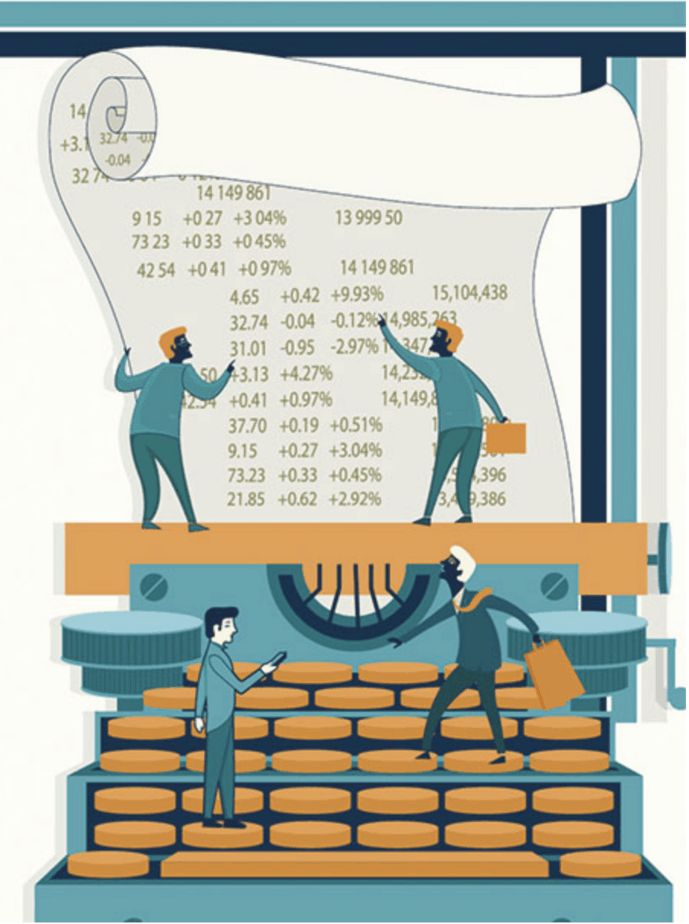Accountancy firms need to rethink how they handle billing if they want to maximise practice profits and maintain a good work/life balance, says Paul Davis.
Pricing is a sensitive subject. In contract negotiation, it is the moment when hearts beat a little faster, the breathing quickens and everyone suddenly comes wide awake. Yet for all that excitement, the vast majority of accountants agree fees in the same old way. They settle on an hourly or daily rate, and once the task is completed, the client is invoiced and then pays some 30 to 90 days later.
The truth, however, is that time billing is systemically flawed. It focuses on effort rather than results, even though it is the results that justify the expenditure in the first place. By breaking that connection between what the client spends and what they get for that expenditure, time billing becomes regressive and counterintuitive. It discourages improvement. There’s little point in doing the job more quickly if you end up getting paid less. The only way to increase earnings is either to charge more or work more hours. The former exhausts your clients, the latter exhausts you.
Value-based pricing allows you to link the fees you charge not to the time you spend working, but to the value you create for the client
Let’s pretend for a moment there’s no such thing as time billing and focus instead on this universal truth: the only reason accountants can charge for their services is because the profit the client makes from using them outweighs the cost. A full understanding of the implications of this principle could transform how you do business.
If you could define the value your services generate for your client and demonstrate that value, you would suddenly have a more equitable, ethical, transparent and sustainable means of pricing your services. What’s more, you would have a vastly more profitable business model.
In their first meeting with a prospective client, practitioners tend to adopt a presentation mode: this is our practice, this is why we’re the best, this is the list of things we can do. With value-based pricing, you put the client at the centre of the conversation and you keep them there.
Your first contact should not be a recitation of your services; it should be a conversation where you respectfully and tactfully explore the client’s business, asking open-ended questions that get to the heart of the problems the client faces. Only then can you begin to unearth the value you can generate for their business.
As professionals, practitioners harness their expertise to deliver outcomes, while clients harness these outcomes to deliver value. Building a trust-based relationship short-circuits this dynamic, allowing you to link your expertise directly to value delivered.
Moving from time billing to value-based pricing allows you to link the fees you charge not to the time you spend working, but to the value you create for the client. How to begin? By having the value conversation as early as possible in the relationship, and by continuing that conversation throughout the project and beyond.
How it works
Here’s one example of how a value-based professional relationship operates. I was asked to do a piece of work for a Tipperary-based client whose company was making serious losses and carrying €350,000 of debt. Within three months, we had turned the company around, giving the client a positive cashflow and clearing the overdrafts that had dogged the balance sheet.
At the conclusion of this process, we were sitting over coffee after lunch in the local pub and I asked my client what difference the intervention had made to him. He didn’t say: ‘Well, I’ve got money in the bank,’ nor ‘I’m back in profit.’ What he said was: ‘I don’t have to worry about paying for my daughter’s wedding.’
Having such conversations requires confidence. Part of the reason why startup practices price themselves so low is they panic. They need to get money in the door, so they take anyone with a pulse. But when your confidence is high and you feel more sure of yourself, you can redraft the relationship and begin to ask those value questions.
The power of three
Moving from billable hours to commodity pricing is also worth examining. In this model, you always offer three different plans.
Suppose the service is company formation. Your entry-level service costs €250, and covers simply registering the company with the Companies Registration Office. Your €500 service might also include tax registration. Finally, your €1,500 service offers a more in-depth, customised approach, where you sit down with the client, discuss the aims of the company, perhaps provide templates for their bookkeeping and explain the key measures they should monitor.
How does this help? If, by contrast, you were to say: ‘Our company formation fee is €500,’ the client has nothing to compare that with and will respond: ‘Well, can we negotiate on that?’
By presenting a tiered offering, you offer an intelligible suite of services and that vital element of choice. Moreover, you will find that the entry-level service is frequently eschewed in favour of the mid-range option.
But it is through that seismic shift from time billing to value-based pricing that you unlock real earnings growth, as I’ve found time and again with clients. I recently commissioned independent research that found that moving to value-based pricing has allowed my clients to raise their fees by an average of 274%. And that’s not a misprint!
Paul Davis is an executive mentor at Davis Business Consultants.
Published by ACCA
https://abireland.accaglobal.com/2019/09/23/19oct_ie_yprac_billing/pugpig_index.html

